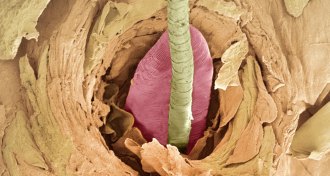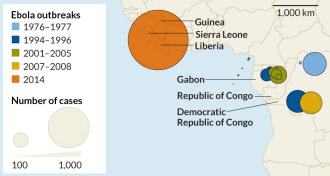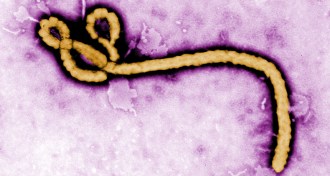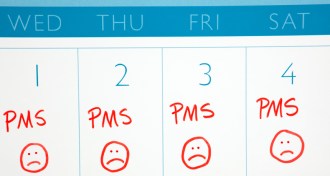Health & Medicine
-
 Health & Medicine
Health & MedicineTiny mites are probably crawling all over your face
Two skin mites, relatives of spiders, might populate the faces of all adult humans, according to a DNA survey.
By Nsikan Akpan -
 Life
LifeZMapp drug fully protects monkeys against Ebola virus
In a test, 18 monkeys injected with the Ebola virus and treated with an experimental drug called ZMapp survived.
By Nathan Seppa -
 Health & Medicine
Health & MedicineBabies may be good at remembering, and forgetting
Studies in kids suggest that young children can form memories but can’t recall them later, offering new clues to how memory-storing systems form in young brains.
-
 Genetics
GeneticsEbola genome clarifies origins of West African outbreak
Genetic analyses suggest that a single infected person sparked the ongoing Ebola epidemic in West Africa.
-
 Health & Medicine
Health & MedicineHuman tests of experimental Ebola vaccine set to start
NIH and NIAID have announced that human tests of an experimental vaccine against Ebola virus will begin in early September.
By Nathan Seppa -
 Health & Medicine
Health & MedicineTo grow new knee cartilage, look to the nose
Cartilage-making cells from the nose grew into patches that successfully replaced damaged or missing cartilage in the knees of goats and of humans.
By Nathan Seppa -
 Chemistry
ChemistryLiquid salts break through armored bacteria on skin
Compounds called ionic liquids can penetrate bacterial biofilms on skin to deliver antibiotics to potentially life-threatening infections.
By Sam Lemonick -
 Health & Medicine
Health & MedicineStates’ pot laws linked to drug overdose death rates
Death rates from drug overdoses appear to be lower in states with medical marijuana laws.
-
 Psychology
PsychologyHypothesis on evolution of PMS attracts hostility
A new hypothesis states that PMS is evolutionarily useful for making women leave an infertile partnership. But other scientists question whether the hypothesis is reasonable or, in fact, even necessary.
-
 Health & Medicine
Health & Medicine‘NOVA’ takes science’s side in vaccine debate
A TV documentary dissects concerns about vaccinations and spells out the science supporting their use.
By Nathan Seppa -

-
 Life
LifeTest drug stops Marburg virus in monkeys
Using a nano-size piece of RNA, scientists have stopped Marburg virus in monkeys.